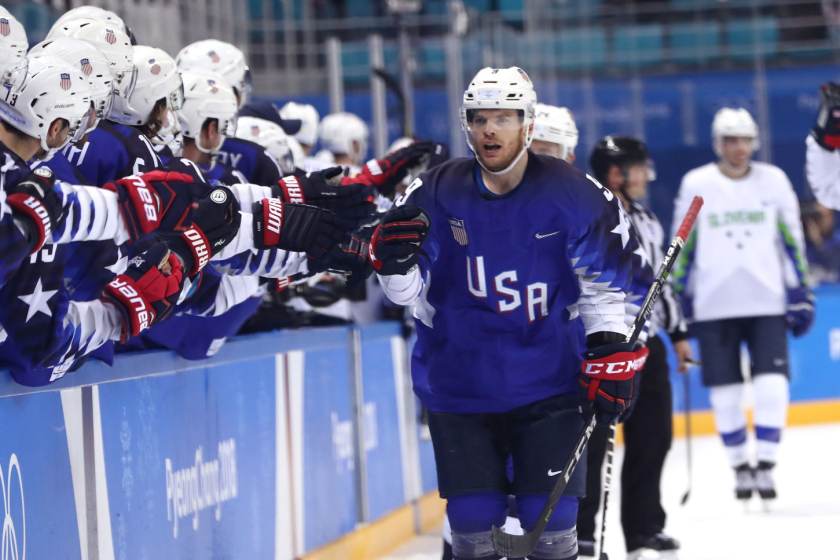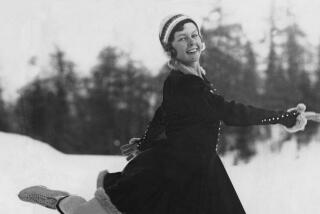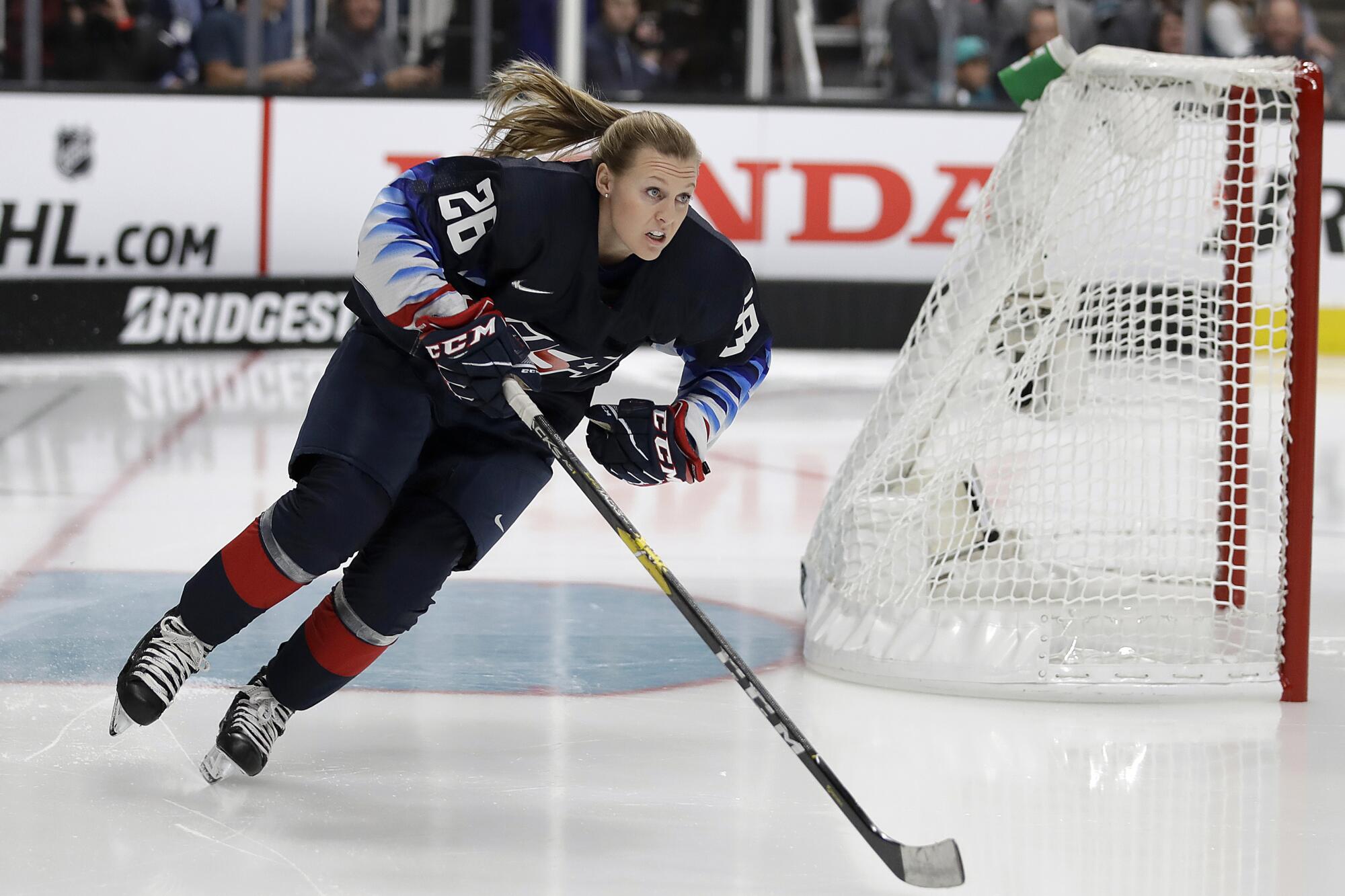
Before she was an Olympic hockey gold medalist, before she became the first woman to compete in the NHL’s all-star skills contests or was hired by the Chicago Blackhawks as a player development coach and youth hockey growth specialist, Kendall Coyne Schofield was the Hockey Girl with the Braid.
She fell in love with hockey while growing up in the Chicago suburbs, copying her older brother Kevin as they rollerbladed around their basement and blasted pucks at the walls. The photogenic dimple on the right side of her face isn’t a blessing of genetics: it’s the souvenir of a slapshot taken by Kevin.
Their parents let him play hockey and enrolled her in figure skating classes, no small expense for a family that grew to four children. She quit after two sessions. “I need the sport,” she told her stunned parents. They gave in — and learned to braid her hair to keep it out of the way when she wore her hockey helmet.
As it turned out, the sport needed her, too.
USA Hockey selected a men’s Beijing Olympics roster comprised of 15 college players that includes eight players who have been playing in Europe.
Coyne Schofield, 29, is poised to become a three-time Olympian in Beijing, where she and her teammates will try to repeat as champions. It’s the next step on a journey filled with firsts and accolades but also with obstacles and insults, of repeatedly being told girls didn’t belong in sports and of dodging hot pennies tossed at her team by fans who screamed that girls belonged in the kitchen, not playing in a peewee tournament.
The girl who rejected the status quo became a fearless adult, joining her U.S. teammates in threatening to boycott the 2017 World Championships unless USA Hockey — the sport’s governing body — gave them better resources and support. They won that battle, but they’re still fighting for a viable women’s professional league so they can drop their “other” jobs and have more chances to compete.
“This game can’t be set up only for 23 national team players to succeed. We need to see that same support be replicated day in and day out on a professional level,” Coyne Schofield said during a recent phone conversation.
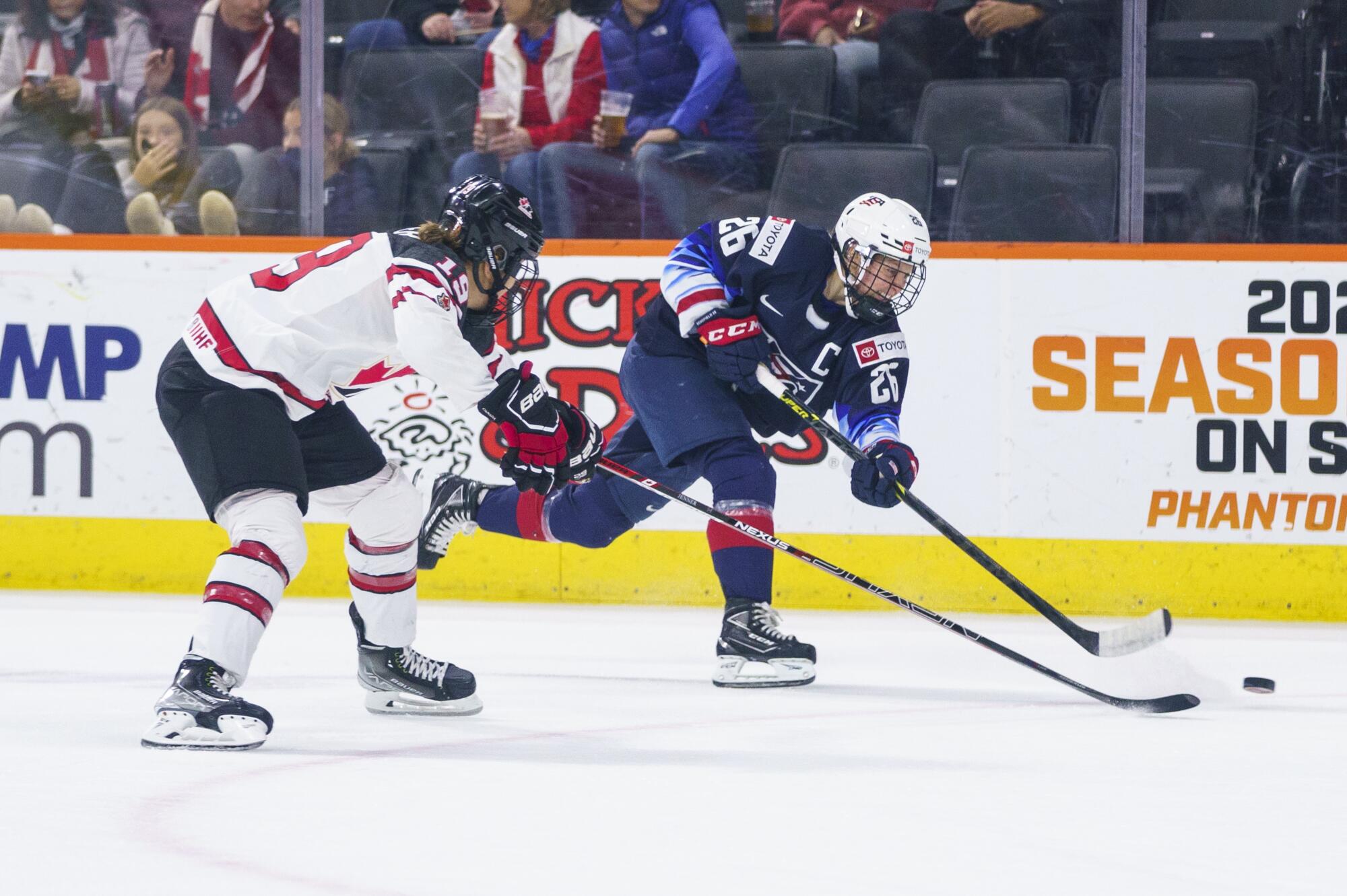
“When I came home after those two Olympic experiences everyone was saying how incredible the Games were and women’s hockey was their favorite event and they always asked the follow-up question, ‘When do I get to see you play next?’ And it’s dead silence. I don’t know how else to respond. The answer is simply, ‘I don’t know.’ We need the increased visibility for resources to pour in like we know they can, and we know we deserve to have them pour in.”
Coyne Schofield’s profile soared after she zipped around the ice during the fastest skater contest at the 2019 NHL All-Star weekend. She was less than a second slower than superstar Connor McDavid and faster than one NHL player, showcasing female hockey players during the between-Olympic years when it’s not easy to follow them. She and fellow U.S. Olympian Brianna Decker, who excelled in a passing drill, weren’t gimmicks. They were competitors.
Coyne Schofield leaned on that experience for the title of her book, “As Fast as Her,” published Jan. 18. The book, made easier by her lifelong habit of taking notes and keeping journals, is aimed at young adults. It’s an easy read that recaps her experiences and offers encouraging words presented as “Golden Coynes.” Tennis great Billie Jean King, a lifelong advocate of equal opportunity for women and a mentor to Coyne Schofield, wrote the foreword.
“So many times, women only get attention when they do something in a man’s arena,” King wrote. “I have long believed that when a woman leads, she does not lead for just girls and women, she leads for all of us — and Kendall is doing just that.”
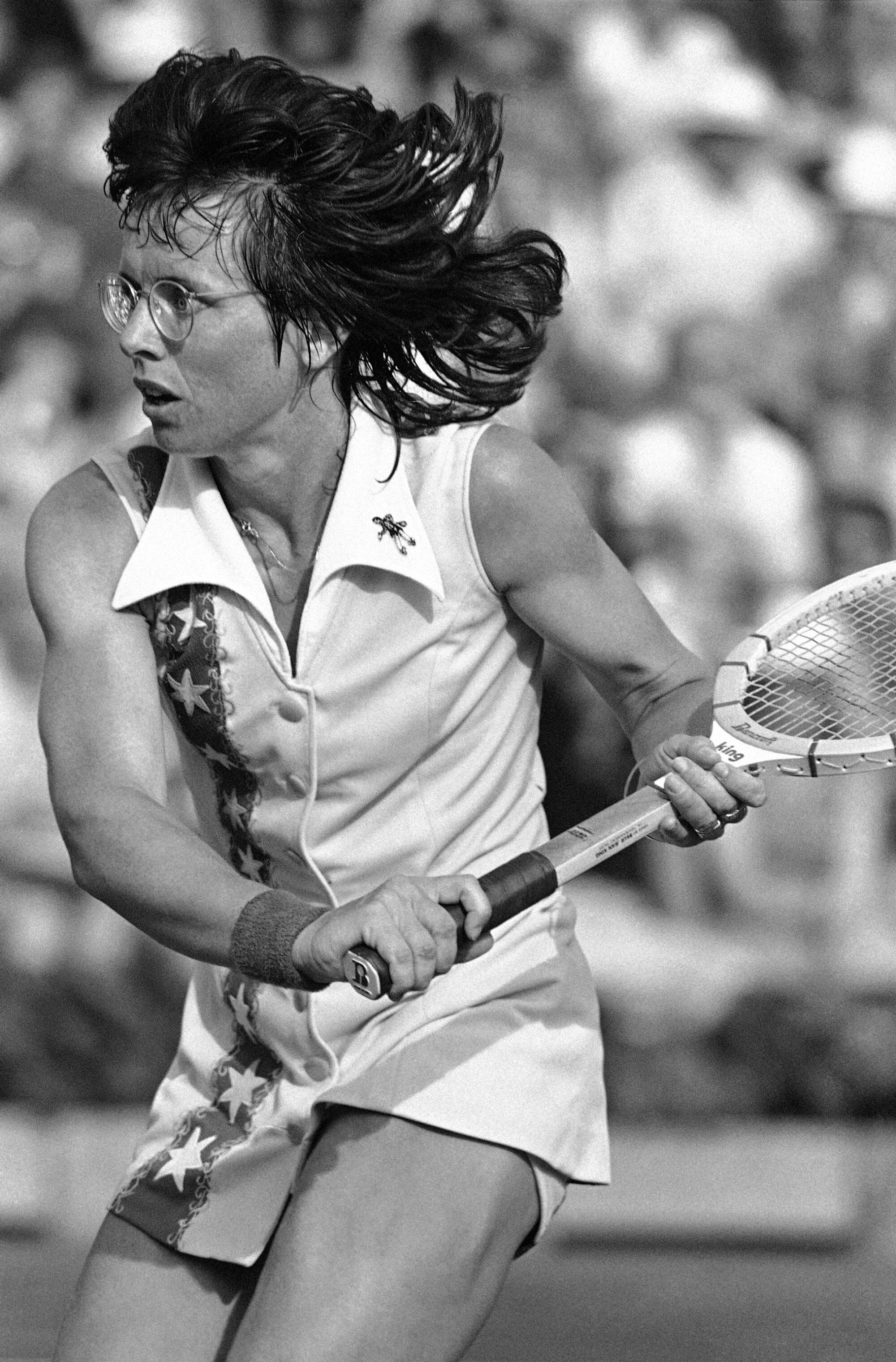
Just as King felt she was representing her gender in her memorable 1973 “Battle of the Sexes” tennis match against Bobby Riggs, Coyne Schofield felt intense pressure to succeed in that NHL skills contest. She knew one slip could have reflected badly on female hockey players and kept them out of future NHL events.
She didn’t disappoint. “I was either going to crush that moment or that moment was going to crush me and, even bigger than me, the sport,” she wrote. “Because I jumped on that opportunity I was able to accomplish something beyond it.”
It’s now Coyne Schofield’s time to be the Billie Jean King of her era and blow open the creaky doors that are stuck shut. She’s ready.
“She fought for generations to come — and that includes me, and she didn’t even know me,” Coyne Schofield said. “She didn’t know the hundreds and thousands and millions of people she fought for, and to be one of the recipients of her willingness to sacrifice everything, the least that we can do is continue to carry the torch and fight for equality like she has her whole life.”
Coyne Schofield became an owner of the Chicago Red Stars of the National Women’s Soccer League and also launched a broadcasting career but had to put many activities on hold when she entered a pre-Olympic residency in Blaine, Minn. She continued working for the Blackhawks remotely, planning youth hockey programs and breaking down their prospects’ games by Zoom.
But being in a semi-bubble meant she couldn’t attend the Chargers’ make-or-break regular-season NFL finale to cheer for her husband, guard/tackle Michael Schofield III. She was more nervous for that game than for his Super Bowl 50 win with Denver. “It was a heartbreaker, but it was a phenomenal game,” she said of the Chargers’ overtime loss to the Las Vegas Raiders.
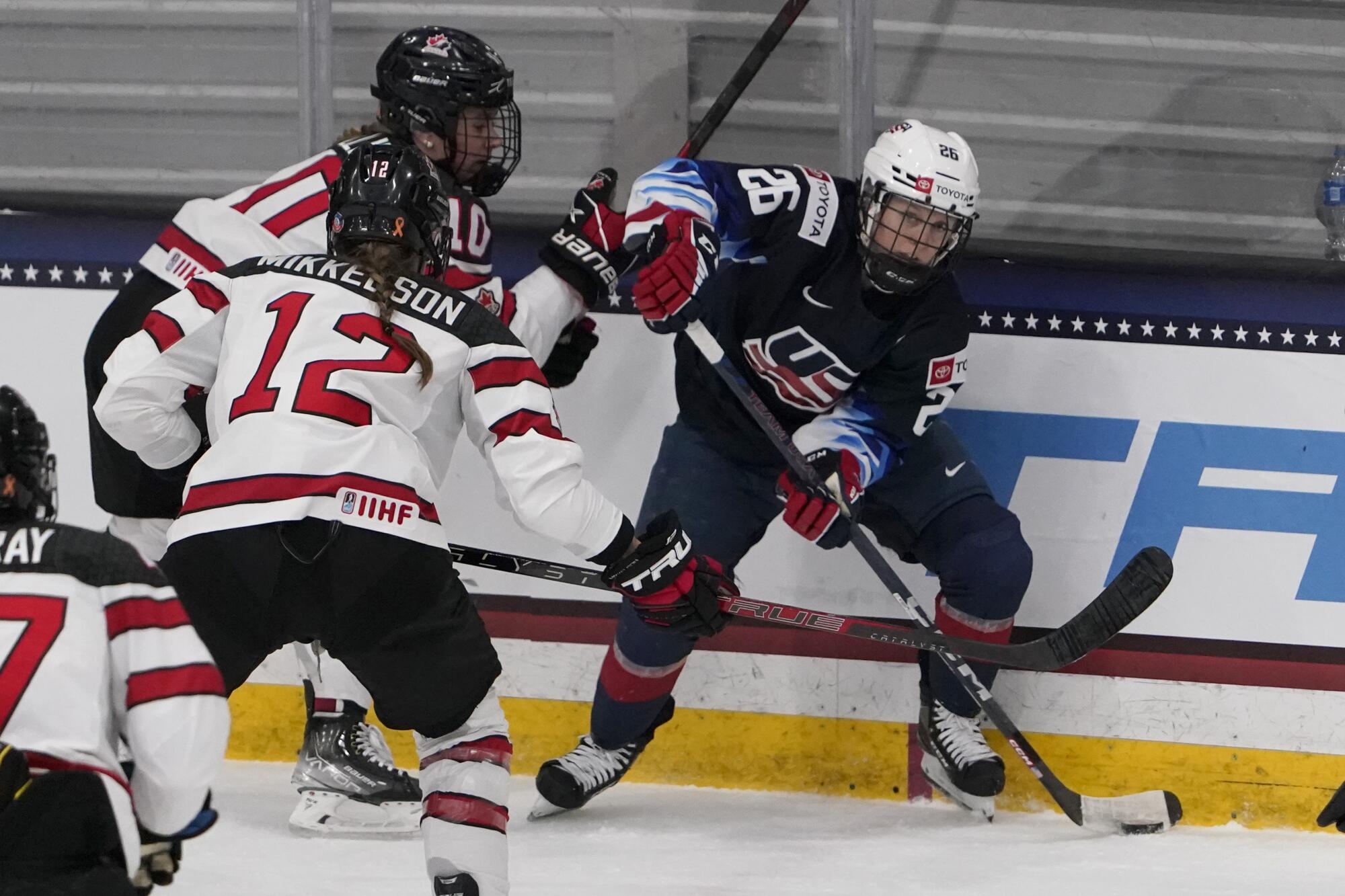
He accompanied her to Pyeongchang but can’t go to Beijing because COVID concerns led organizers to ban foreign fans and minimize the number of visitors. That will hurt. “There’s no sugarcoating it,” she said. “You don’t get to the Olympic games by yourself. It takes a village. To not have those people there in person is going to be challenging. But if there’s one positive out of that I’m thankful I’m going to China as a family of 41: our players and our staff.”
The U.S. women’s team will be a co-favorite with perennial rival Canada; they’ve faced off for the gold medal in five of six tournaments since women’s hockey was added to the Olympic program. Both teams had pre-Olympic exhibitions canceled because of COVID restrictions and neither will be game-sharp.
Coyne Schofield is one of 15 Americans with Olympic experience with eight first-timers. She’s not sure how that will play out. Above all, she hopes everyone gets to Beijing healthy and avoids contracting COVID. “We know it’s going to happen somewhere to someone and it’s going to be devastating to think you may be ruled out after dreaming about this moment your whole life,” she said.
Donovan Carrillo, who is the best ice skater in Mexican history and trains at a shopping mall rink, is headed to Beijing. It’s taken lots of perseverance.
“I think this is a special group and we’ve been through a lot. I’m not going to lie. It’s been so tough,” she said. “And I think that toughness is going to show on the ice because we had to grind to get to these Olympic Games. When we get the opportunity to get over to Beijing and play those games, I think it’s going to be a sense of relief, enjoyment, joy, excitement and every other positive feeling that you can put into writing.”
As a 6-year-old she met Cammi Granato, a women’s hockey pioneer and 1998 Olympic champion, at a hockey camp. Granato let her wear the medal, a moment that changed her life. Coyne Schofield told her parents, “I want to go to the Olympics and win a gold medal.” She will continue paying that inspiration forward at Beijing, and long afterward.
More to Read
Go beyond the scoreboard
Get the latest on L.A.'s teams in the daily Sports Report newsletter.
You may occasionally receive promotional content from the Los Angeles Times.

